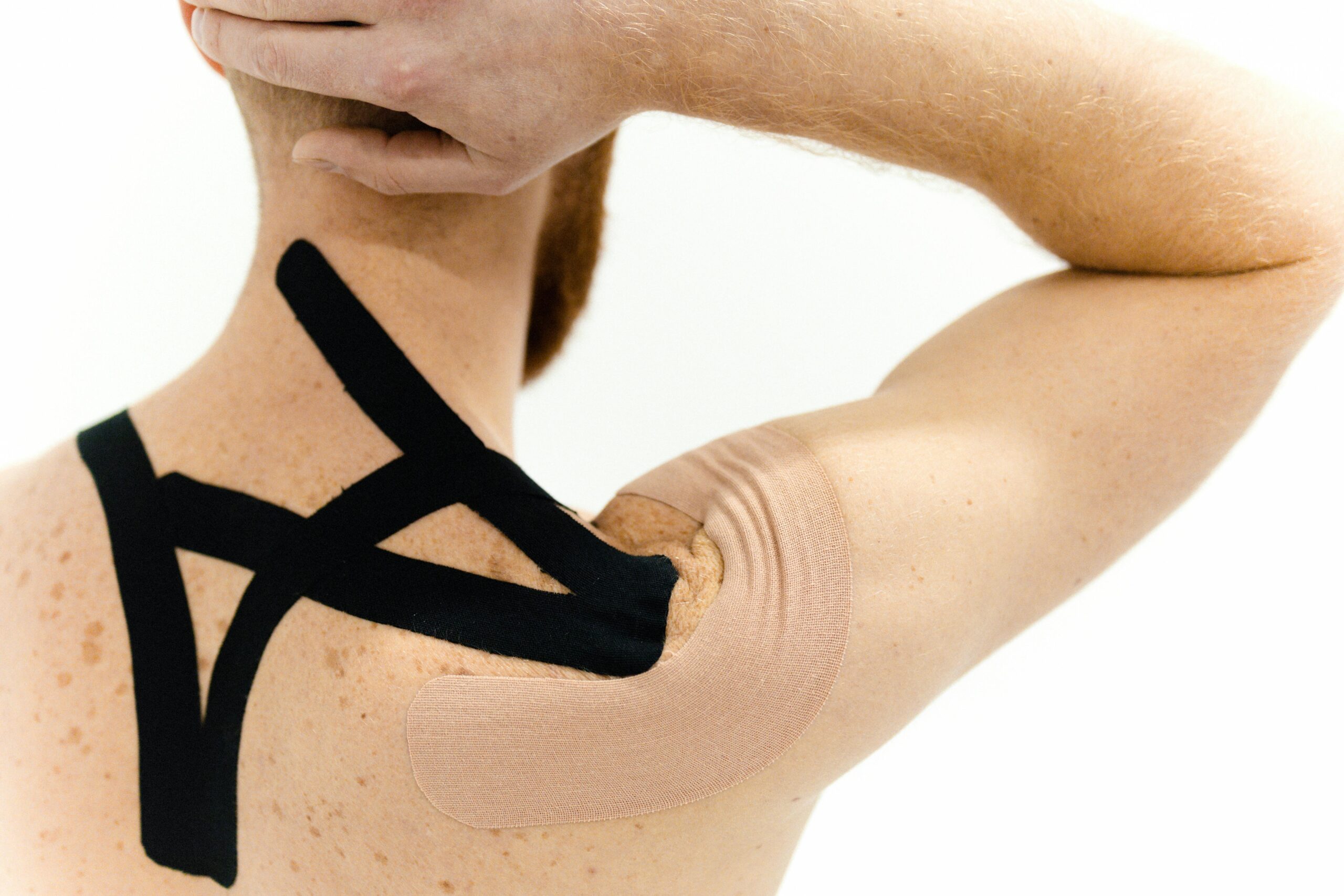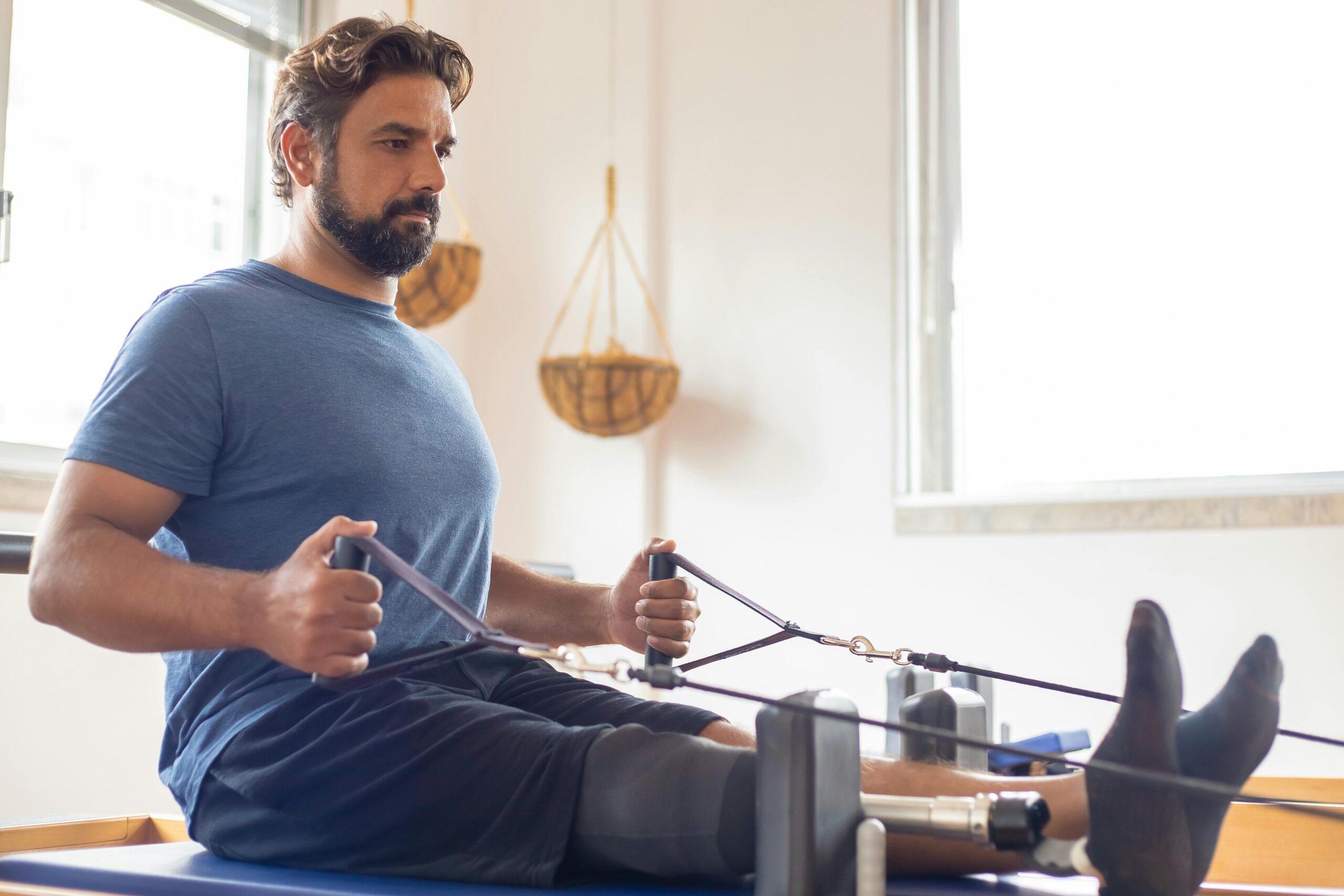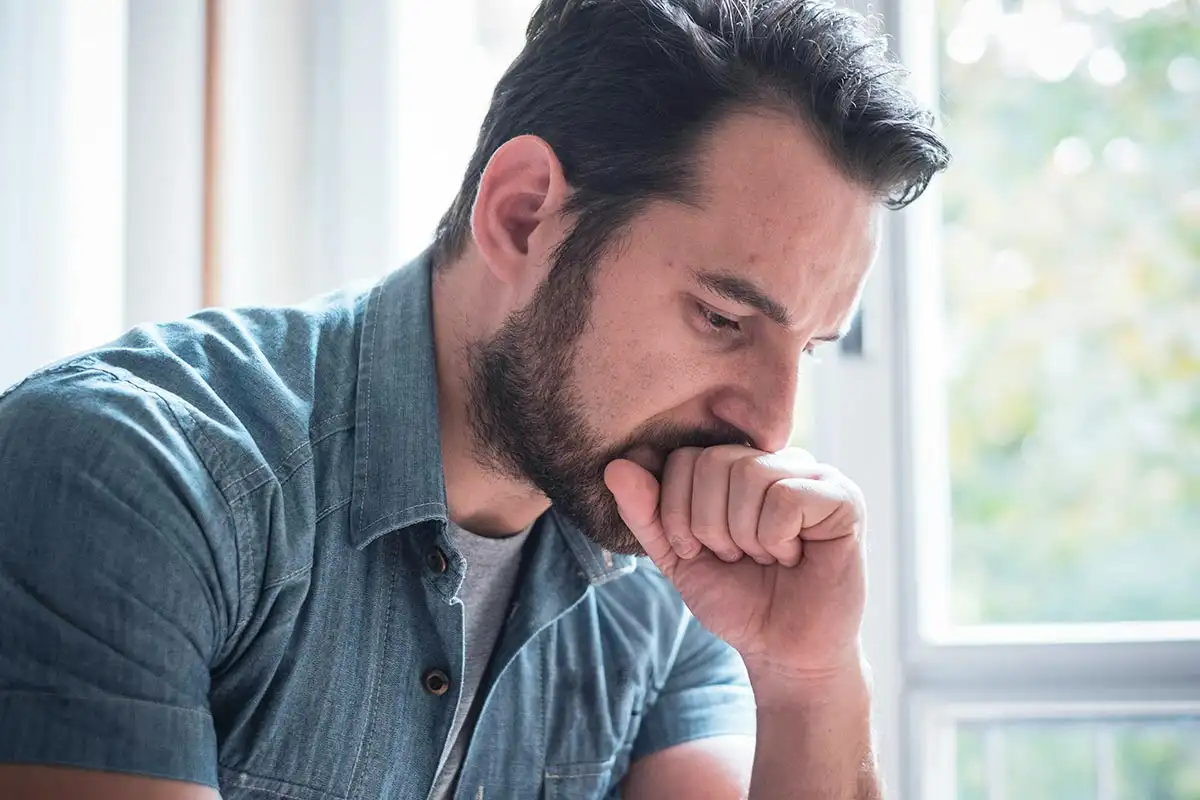
Is Rehab Right for Me? Self-Assessment Questions to Consider
Medically Reviewed by:

Dr. Marco M. Zahedi
Medical Director, Compassion Recovery Center

Dr. Michael Majeski
Licensed Psychologist (LP), Compassion Recovery Center
Table of Contents
Introduction
Considering whether rehab is the right step for you is a significant and often challenging process. It requires courage, honesty, and a willingness to look deeply at your relationship with substances or behaviors. For many, the idea of traditional, inpatient rehab can feel overwhelming or simply unmanageable due to work, family commitments, or geographical distance. The good news is that the landscape of addiction treatment has evolved significantly. Today, flexible and accessible options like remote and telehealth services are available, including those offered by Compassion Recovery Center, making it possible to get the help you need without putting your life entirely on hold. This exploration is about self-assessment, a personal journey to understand if your current situation warrants professional intervention. It’s not about judgment, but about gaining clarity. By asking yourself difficult questions and honestly evaluating the impact substance use has on your life, you can determine the best path forward. Whether you’re in Orange County, California, or anywhere else, understanding your situation is the first step towards a healthier future. Reaching out for help is a sign of strength, not weakness.
Understanding Rehab
What exactly is “rehab”? The term is short for rehabilitation, and in the context of substance use, it refers to a structured program designed to help individuals overcome addiction and learn the skills necessary to maintain long-term sobriety. The primary purpose of rehab is multifaceted: to provide a safe environment away from triggers and access to substances, to address the underlying physical and psychological aspects of addiction, and to equip individuals with coping mechanisms and support systems for life after treatment. Rehab is not a one-size-fits-all solution. It encompasses a spectrum of care, typically categorized by the intensity and structure of the program. Traditionally, rehab programs fall into two main categories: – Inpatient Rehab: This is the most intensive form of treatment, where individuals live at a residential facility 24/7 for a period, typically ranging from 30 to 90 days, or sometimes longer. It provides a highly structured environment with around-the-clock medical and clinical support. This is often suitable for severe addictions or those who need removal from their current environment. – Outpatient Rehab: In this model, individuals attend therapy sessions and groups at a facility during the day or evening but return home afterward. Outpatient programs vary in intensity. A standard Intensive Outpatient Program (IOP) typically involves several hours of therapy multiple days a week, providing significant support while allowing individuals to live at home and continue with some daily responsibilities. Partial Hospitalization Programs (PHP), sometimes called day treatment, are more intensive than standard IOP but less than inpatient, often involving full days of therapy before returning home in the evening. The most significant recent development is the rise of telehealth options, offering flexibility and accessibility previously unimaginable. Virtual IOP programs and other forms of telehealth addiction treatment bring the core components of outpatient rehab directly to you, wherever you are, via secure video conferencing. This means individuals can receive evidence-based therapies, participate in group sessions, and connect with counselors from the comfort and privacy of their own home. This is particularly beneficial for those in Orange County or surrounding areas who need local support but prefer the flexibility of remote access. Explore treatment options that fit your lifestyle. Regardless of the type, the goal of rehab is fundamentally the same: to help you achieve sobriety, develop healthier coping mechanisms, and build a foundation for a fulfilling life in recovery. It provides tools, support, and understanding that are often difficult to find when trying to navigate addiction alone.Self-Assessment Questions
Understanding whether professional help is necessary begins with honest self-assessment. This isn’t about finding fault, but about recognizing patterns and impacts. Asking yourself direct questions can illuminate the reality of your situation and help you determine if rehab is the right next step. This process requires introspection and courage, but it is a vital part of determining your path towards recovery. Here are some key self-assessment questions to consider seriously. Reflect on each one and answer as honestly as possible, acknowledging that addiction often involves denial. Have you tried to quit on your own but failed? This is perhaps one of the most telling questions. Many people who struggle with substance use disorder make repeated attempts to quit or cut back on their own. They might set limits, try to go a few days without using, or promise themselves and loved ones that things will change. However, despite genuine intentions, they find themselves returning to substance use. This cycle of trying and failing to quit is a hallmark of addiction. It indicates that the control over substance use has been lost, and willpower alone is often insufficient to overcome the physical dependence and psychological compulsion. If you’ve made multiple unsuccessful attempts to stop or reduce your use, it’s a strong indicator that professional intervention, such as a structured rehab program, may be necessary. Rehab provides the tools, support, and accountability that are often missing in solitary attempts to quit. It addresses the underlying reasons for substance use and teaches strategies to cope with cravings and triggers, which are crucial for long-term success. Trying to quit alone and failing doesn’t mean you are weak; it means you are dealing with a powerful condition that requires professional expertise. Get help for substance abuse if self-attempts have failed. Do you experience withdrawal symptoms? Withdrawal symptoms occur when a person who is physically dependent on a substance stops or significantly reduces their use. These symptoms can range from mild discomfort (like sweating, shaking, anxiety) to severe and potentially life-threatening conditions (like seizures, hallucinations, delirium). The presence of withdrawal symptoms is a clear sign of physical dependence, which is a core component of many addictions. Experiencing withdrawal indicates that your body has become accustomed to the substance’s presence and struggles to function normally without it. Attempting to detox or withdraw without medical supervision can be dangerous and incredibly uncomfortable, often leading individuals to resume substance use simply to alleviate the symptoms. Rehab, particularly programs that include or coordinate with medically supervised detox (like Outpatient Detox in some cases, or preparing for detox before entering remote IOP), provides a safe environment to manage withdrawal. Medical professionals can administer medications to ease symptoms and monitor your health. If you experience physical or psychological discomfort when you try to stop using, it’s a strong signal that professional help is needed to navigate the detox process safely and move into the therapeutic phases of recovery. Check insurance coverage for detox and rehab options. Is your substance use affecting your relationships? Addiction is a disease that doesn’t just affect the individual; it impacts everyone around them. Substance use often leads to conflict, mistrust, and emotional distance within relationships with family, friends, and partners. Have loved ones expressed concern about your substance use? Have you lied about your use, missed important family events, or become withdrawn from social activities? Do arguments frequently arise concerning your habits or behavior while under the influence? These are all red flags. Addiction can change behavior, priorities, and personality, making it difficult to maintain healthy connections. Relationships require trust, communication, and presence, all of which can be eroded by active addiction. Recognizing that your substance use is causing strain or damage to your relationships is a critical part of the self-assessment. Repairing these relationships is a significant part of recovery, and many rehab programs, including those offering virtual couples or family counseling, help individuals and their loved ones begin this healing process. If your substance use is isolating you or causing pain to those you care about, professional intervention is likely necessary to address both the addiction and its impact on your social support system. Reach out today to discuss how treatment can help. Are you neglecting responsibilities due to substance use? Substance use disorder often escalates gradually, but a key indicator that it has become a significant problem is when it starts to interfere with daily responsibilities. This could include work, school, household duties, parenting responsibilities, or even basic self-care like hygiene and nutrition. Are you frequently late or absent from work? Are your job performance or academic grades suffering? Are bills going unpaid? Are you neglecting your children’s needs or failing to maintain your home? Addiction can become the central focus of a person’s life, pushing everything else to the periphery. The time, energy, and financial resources consumed by acquiring and using substances can leave little room for anything else. If you are consistently failing to meet your obligations because of substance use, it’s a strong sign that the substance has taken control. Rehab provides the structure and support needed to regain control, prioritize responsibilities, and rebuild a stable life. Start your free assessment to see how addiction is impacting your life. Have you experienced legal issues related to substance use? Legal problems are often a direct consequence of risky behaviors associated with substance use. This can include arrests for Driving Under the Influence (DUI), possession charges, public intoxication, theft (to fund substance use), or other crimes committed while under the influence or to support the addiction. Involvement with the legal system due to substance use is a serious indicator that your use has crossed a threshold into dangerous territory. Legal consequences can have long-lasting impacts on employment, housing, and personal freedom. If you have faced legal issues related to your substance use, it’s a clear sign that professional help is needed not only to address the addiction itself but also to develop healthier behaviors and decision-making skills to prevent future problems. Sometimes, court systems even mandate rehab as part of sentencing, recognizing it as a necessary step for rehabilitation. Regardless of whether it’s mandated or voluntary, legal trouble stemming from substance use is a powerful sign that it’s time to seek professional help like Drug Rehab Programs or Alcohol Rehab Programs. Honestly answering these self-assessment questions can provide valuable insight into the severity of your substance use and its impact on your life. If several of these resonate with you, it strongly suggests that professional help through a rehab program could be beneficial.
Signs You May Need Rehab
Beyond the direct questions about trying to quit, withdrawal, relationships, responsibilities, and legal issues, there are many other signs that indicate professional help may be necessary. These signs often manifest across different areas of your life – physical, psychological, behavioral, and social. Recognizing these signs in yourself or a loved one is a crucial step toward seeking help. Common signs indicating the need for professional treatment include: – Increased Tolerance: Do you need larger amounts of the substance to achieve the same effect you once did? This is a classic sign of physical dependence and escalating use. It means your body has adapted, requiring more of the substance to feel “normal” or get high. – Health Issues: Are you experiencing physical or mental health problems related to your substance use? This could range from chronic fatigue, weight loss/gain, organ damage (liver, heart, lungs), frequent illness, to exacerbated mental health conditions like anxiety or depression. Substance abuse significantly impacts physical and mental well-being. Mental Health Treatment is often integrated into addiction recovery, especially for those with Dual Diagnosis Treatment needs. – Loss of Control: Do you find it difficult to control the amount or duration of your substance use once you start? Do you often use more than you intended? This loss of control is a key characteristic of addiction. – Spending Excessive Time and Money: Does a significant portion of your time or money revolve around obtaining, using, or recovering from the effects of substances? This indicates that substance use has become a primary focus, often at the expense of other essential activities and needs. – Continuing Use Despite Harm: Do you continue to use substances even though you know they are causing physical harm, psychological distress, or problems in your life? This persistence despite negative consequences is a powerful sign of addiction. – Social Isolation: Are you withdrawing from friends, family, or activities you once enjoyed to use substances? Do you prefer to use alone? Addiction can lead to social isolation as substance use becomes prioritized over meaningful connections. – Risky Behaviors: Are you engaging in risky activities while under the influence, such as driving, unsafe sex, or criminal acts? Substance use impairs judgment and can lead to dangerous decisions. – Obsession and Preoccupation: Do you spend a lot of time thinking about using, planning when and how you will use, or recovering from using? This mental preoccupation with the substance is a significant sign of dependence. – Cravings: Do you experience intense urges or desires to use the substance, especially in certain situations or when feeling stressed or emotional? Cravings are a powerful aspect of addiction. – Changes in Appearance or Behavior: Have there been noticeable changes in your physical appearance (neglect of hygiene, weight changes) or behavior (secretiveness, mood swings, irritability) that are out of character? These signs, especially when several are present, paint a picture of a life increasingly controlled by substance use. Recognizing these indicators is not about assigning blame, but about identifying that the situation is beyond simple willpower and that professional help is needed to break the cycle. Programs like Remote IOP offer a way to address these issues comprehensively within a supportive structure. If you see these signs in yourself or a loved one, it’s time to consider seeking professional help. Contact us for a confidential assessment.Benefits of Rehab
If the self-assessment questions and common signs resonate with you, the next natural question is: what are the benefits of seeking professional help through rehab? Why go through a structured program when you could theoretically try to quit on your own again? The benefits of rehab are numerous and address the complex nature of addiction more effectively than individual efforts alone. One of the primary benefits is access to a supportive and structured environment. In rehab, you are surrounded by professionals and peers who understand what you are going through. This reduces feelings of isolation and provides a sense of community and shared purpose. The structure of daily therapy sessions, group meetings, and planned activities helps to create routine and stability, which is often lacking in active addiction. Rehab provides evidence-based therapies designed to address the root causes of addiction. This includes individual counseling, group therapy, and specialized therapeutic approaches like online CBT therapy (Cognitive Behavioral Therapy), DBT (Dialectical Behavior Therapy), and motivational interviewing. These therapies help individuals identify triggers, challenge negative thought patterns, develop healthy coping mechanisms, and build relapse prevention strategies. For those with physical dependence, rehab often includes medical support, particularly during the initial detox phase. Medical professionals can manage withdrawal symptoms safely and comfortably. Programs may also offer access to MAT treatment online (Medication-Assisted Treatment), combining medication with therapy to support recovery from opioid or alcohol dependence. Rehab also addresses co-occurring mental health disorders (dual diagnosis). It’s common for individuals with addiction to also struggle with conditions like depression, anxiety, trauma, or bipolar disorder. Integrated treatment ensures that both the addiction and the mental health issues are addressed simultaneously, which is crucial for successful long-term recovery. Compassion Recovery Center specializes in Dual Diagnosis Treatment via telehealth. Furthermore, rehab helps individuals develop essential life skills that may have deteriorated during active addiction. This can include communication skills, stress management, emotional regulation, and problem-solving. Learning these skills is vital for navigating life’s challenges without relying on substances. Now, let’s specifically consider the advantages of remote IOP and telehealth addiction treatment. For residents of Orange County and beyond, these options offer unique benefits: – Flexibility and Convenience: Remote programs fit into your existing life. You don’t have to leave your job, family, or home for extended periods. Sessions are accessed via secure video, eliminating commute time and costs. This makes treatment accessible even with a busy schedule or mobility issues. – Privacy and Comfort: Participating in therapy from your own home can feel safer and more comfortable for many individuals, reducing anxiety about entering a new environment. – Real-World Application: Being in your home environment while in treatment allows you to immediately apply the coping skills and strategies you learn in the real world, where triggers and challenges actually occur. This can strengthen relapse prevention efforts. – Reduced Cost: Telehealth programs often have lower overheads than inpatient facilities, potentially making them more affordable. – Access to Local Support: For those seeking Orange County IOP services remotely, you get local understanding and resources while benefiting from remote convenience. – Family Involvement: Telehealth makes it easier for family members to participate in family therapy sessions, which is vital for healing relationships. Compassion Recovery Center offers virtual couples counseling rehab and family therapy. In summary, professional rehab provides a comprehensive approach to addiction treatment that is difficult, if not impossible, to replicate on your own. It offers structure, expert guidance, therapeutic tools, medical support, and a focus on addressing underlying issues. With the advent of telehealth addiction treatment, these benefits are now more accessible and flexible than ever before, allowing more people to embark on their recovery journey without disrupting their lives entirely. Verify your insurance online to see how accessible treatment can be.Choosing the Right Rehab Program
Deciding that you need rehab is a courageous first step. The next is figuring out what kind of program is the best fit for your unique needs and circumstances. Choosing the right rehab program is critical for setting yourself up for success in recovery. There isn’t a single “best” program for everyone; the ideal choice depends on various factors related to the severity of your addiction, any co-occurring conditions, your life situation, and your personal preferences. Here are some factors to consider when selecting a rehab program: – Severity of Addiction: Is your addiction severe, involving significant physical dependence or long-standing use? Inpatient rehab or a program starting with medical detox might be necessary. If your addiction is less severe, or if you have a stable living environment and strong support system, an intensive outpatient program (IOP) or partial hospitalization program (PHP) might be sufficient. Remote IOP is an excellent option for many who meet the criteria for outpatient care but need significant structure and support. – Co-occurring Mental Health Conditions: Do you also struggle with anxiety, depression, bipolar disorder, trauma, or other mental health issues? Choosing a program that specializes in Dual Diagnosis Treatment is essential. Integrated treatment ensures that both conditions are addressed simultaneously, leading to better outcomes. Compassion Recovery Center provides comprehensive care for both addiction and Mental Health Treatment needs. – Support System: Do you have a supportive and stable home environment? If your home life is chaotic or involves active substance use, removing yourself from that environment might be necessary, making inpatient care or a residential sober living situation combined with outpatient therapy more suitable initially. However, if your home is stable, telehealth addiction treatment allows you to remain connected to that support while receiving intensive care. – Logistical Considerations: What are your work, school, or family obligations? Can you take an extended leave of absence for inpatient care? Or do you need a program that allows you to continue with some responsibilities? This is where remote and virtual rehab options in California shine. They offer the structure and therapy needed without requiring you to step away from your life entirely. This is a key reason why Remote Drug Rehab Orange County is increasingly popular. – Program Approach and Philosophy: Do you prefer a specific type of therapy (like CBT or DBT), a 12-step-based program, or a more holistic approach? Research the program’s therapeutic modalities and overall philosophy to ensure it aligns with your preferences and needs. Look for programs that offer personalized treatment plans, as addiction is highly individual. – Cost and Insurance: Treatment costs can vary significantly. It’s crucial to understand what your health insurance will cover. Most reputable centers will help you navigate this. Compassion Recovery Center makes it easy to verify your insurance online. – Accreditation and Staff Qualifications: Ensure the program is accredited by recognized bodies and that the clinical staff are licensed and experienced professionals. The importance of personalized treatment plans cannot be overstated, especially in the context of telehealth. A good program will conduct a thorough assessment to understand your specific history, challenges, strengths, and goals. They will then tailor the therapeutic approach, the intensity of care, and the specific services (like individual therapy, group therapy, family counseling, MAT, etc.) to meet your individual needs. Virtual programs should offer the same level of personalized care as in-person ones, delivered through secure and effective technology. For those in or around Orange County, California, seeking flexible, high-quality care, exploring virtual rehab California options is highly recommended. These programs offer the benefits of structured therapy and support while integrating seamlessly into your life. They are a viable and effective alternative to traditional programs for many individuals. Contact us to discuss your specific needs and how our remote programs can help.Compassion Recovery Center Services
Compassion Recovery Center specializes in providing accessible and effective remote drug and alcohol rehab, primarily serving the Orange County, California area and beyond through telehealth services. Our focus is on delivering high-quality, personalized care that fits into your life, allowing you to embark on the path to recovery without having to leave your home or disrupt essential responsibilities. We understand the unique challenges faced by individuals seeking help for addiction and mental health issues, and we have designed our programs to be flexible, confidential, and deeply supportive. Our range of services is built upon evidence-based practices and delivered by experienced, compassionate clinicians via a secure, user-friendly virtual platform. We offer various levels of care, depending on your needs, all accessible remotely. One of our core offerings is our Virtual IOP Program. Intensive Outpatient Programs provide a significant level of support and structure, typically involving multiple hours of therapy and group sessions several days per week. Our virtual IOP delivers this same intensity and clinical excellence through telehealth. This program is ideal for individuals who require more support than standard outpatient therapy but do not need 24/7 medical supervision. It allows clients to participate in therapy from the privacy and comfort of their home, making it an excellent choice for those seeking virtual rehab California or Orange County IOP with maximum flexibility. Key components of our telehealth services include: – Online CBT Therapy: Cognitive Behavioral Therapy is a highly effective therapeutic approach for addiction and mental health disorders. It helps individuals identify negative thought patterns and beliefs that contribute to substance use, challenge those thoughts, and develop healthier coping strategies and behaviors. Our licensed therapists provide expert online CBT therapy through individual and group sessions, equipping you with practical tools to manage triggers, cravings, and difficult emotions. – MAT Treatment Online: For individuals struggling with opioid or alcohol dependence, Medication-Assisted Treatment (MAT) can be a critical component of recovery. MAT combines FDA-approved medications with counseling and behavioral therapies to provide a whole-patient approach. Compassion Recovery Center facilitates access to MAT treatment online, allowing eligible clients to receive necessary prescriptions and medical monitoring virtually, integrated seamlessly with their therapeutic program. This significantly reduces withdrawal symptoms and cravings, making it easier to focus on recovery. – Virtual Couples Counseling Rehab / Family Therapy: Addiction impacts the entire family system. Healing and rebuilding relationships are vital for long-term recovery. We offer virtual couples counseling rehab and family therapy sessions via telehealth. This allows partners and family members, regardless of their location (though often in the Orange County area for our clients), to participate in therapy sessions alongside their loved one. These sessions improve communication, rebuild trust, set healthy boundaries, and help the family unit heal together, strengthening the support system crucial for sobriety. In addition to these core services, our programs often include: – Individual therapy sessions tailored to your specific needs and history. – Group therapy sessions with peers sharing similar experiences, fostering connection and mutual support. – Education on addiction, relapse prevention, and recovery principles. – Development of coping skills for stress, cravings, and difficult emotions. – Support for developing healthy lifestyle habits. – Care coordination and aftercare planning. The convenience and effectiveness of our telehealth services are paramount. By removing geographical barriers and offering flexible scheduling, we make high-quality care accessible to more people, especially in densely populated areas like Orange County where commuting can be a challenge. Our secure platform ensures confidentiality and privacy, allowing you to engage fully in treatment from a safe space. We believe that compassion, combined with expert clinical care delivered conveniently, is the key to successful recovery. If you’ve answered yes to some of the self-assessment questions and recognize signs that you need help, Compassion Recovery Center offers a path forward. We provide a safe, supportive, and effective environment for healing, all available remotely. Learn more about our virtual IOP or contact us for a confidential assessment to see if our programs are the right fit for you. We are here to help you start your recovery journey today.Conclusion
Taking the time for self-assessment and honestly considering whether rehab is right for you is a brave and necessary step. Addiction is a complex and powerful condition, and recognizing its impact on your life, relationships, and responsibilities is the first stage of reclaiming control. You’ve reflected on key questions – about trying to quit on your own, experiencing withdrawal, damaging relationships, neglecting duties, and facing legal issues. You’ve also considered the broader signs that professional help is needed, from increased tolerance to health problems and loss of control. If these reflections suggest that your substance use is problematic and potentially indicative of a substance use disorder, please know that you are not alone, and help is available. Seeking professional treatment through rehab offers significant benefits that are difficult to achieve independently. It provides a structured and supportive environment, access to evidence-based therapies like online CBT therapy, potential medical support including MAT treatment online, integrated care for co-occurring mental health conditions through Dual Diagnosis Treatment, and the opportunity to develop essential life skills. Choosing the right program involves considering the severity of your needs, logistical factors, and personal preferences. For many, particularly those in Orange County and throughout California, traditional residential rehab may not be feasible due to life commitments. This is where the advancements in telehealth have opened up incredible possibilities. Telehealth addiction treatment, including Remote IOP, offers a flexible, private, and effective alternative that brings comprehensive care directly to you. Virtual rehab California allows you to receive the structured support and therapy you need while remaining connected to your support system and managing your daily life. Compassion Recovery Center is dedicated to providing high-quality, accessible, and compassionate remote addiction treatment. Our services, including Virtual IOP, online CBT therapy, access to MAT treatment online, and virtual couples and family counseling, are designed to support your journey to recovery with flexibility and privacy. Whether you are struggling with Drug Rehab Programs or Alcohol Rehab Programs, our remote services can provide the path forward. We understand that taking the first step can be daunting, but you don’t have to face it alone. If your self-assessment points towards needing professional help, or if you recognize these signs in a loved one, now is the time to explore your options. Don’t let the perceived barriers of traditional rehab prevent you from seeking the care you deserve. Remote treatment offers a viable, effective, and convenient solution. Start your free assessment or contact us for a confidential conversation. Our team is here to answer your questions, explain how our programs work, help you verify your insurance online, and guide you toward a healthier, substance-free future. Recovery is possible, and it begins with taking that first brave step. Start your recovery journey today with Compassion Recovery Center.What are the signs that I need rehab?
How do I know if rehab is right for me?
What questions should I ask myself before deciding on rehab?
What are the benefits of telehealth addiction treatment?
How does remote IOP work?
What services does Compassion Recovery Center offer?
Can I receive couples therapy through telehealth?
What should I consider when choosing a rehab program?
Struggling to balance life while needing support? Get expert virtual care and start your recovery journey, anytime, anywhere.
We’re learning more each day.
Researchers and doctors are making exciting progress in understanding mental health and addiction—bringing hope to millions.
Your genes don’t define you.
Genetics can play a part, but they don’t decide your future. Mental health is shaped by many factors, and healing is always possible.
There's no one-size-fits-all.
The right treatment often includes a mix of therapy, medication, and compassionate care—tailored just for you.
Share article
Begin your recovery today—reach out now.
Complete our form or give us a call anytime at (949) 868-2544 to find out if Compassion Recovery is the right fit for you or a loved one.
We're proud to be in-network with major insurance carriers.







Real stories.
Real results.
Trustindex verifies that the original source of the review is Google. This place was awesome. Josh Marquez and the staff did an amazing job of helping me realize my problems in life as to why I was self medicating and gave me a great program / regiment of daily tasks to better myself and beat my addictions. Six months in my PHP program gave me a proper reset in my life. A must go to treatment center thank you guys.Trustindex verifies that the original source of the review is Google. If it wasn’t for Compassion Recovery Centers, I probably would have died long ago. This place absolutely saved my life and taught me the skills I needed to cope with emotions and behaviors, as well as to become a productive member of society. Their PHP program in Orange County is just phenomenal, with incredibly knowledgeable staff who guide you every step of the way. If anyone is seeking treatment, I definitely recommend Compassion Recovery Centers!Trustindex verifies that the original source of the review is Google. This is the best virtual IOP i have been to so far.Trustindex verifies that the original source of the review is Google. Compassion and Josh ( the owner) are fantastic. This is the only place I found that cared about the patient and didn’t treat them as another number and not a $$. They will work with you and genuinely care about your health and progress. Josh is a rare person in the industry who cares for his patients and is always available if they need anything. I’ve looked at a ton of other places. This one sticks out for all the good reasons.Trustindex verifies that the original source of the review is Google. Compassion Recovery Center offers a comprehensive range of addiction treatment services, addressing substance abuse with a holistic and personalized approach. Nestled in a serene setting, the center provides a conducive environment for healing and recovery, emphasizing mental, physical, and emotional well-being. The center's treatment programs include detoxification, inpatient, outpatient, and aftercare services, catering to individual needs throughout the recovery journey. Compassion Recovery employs evidence-based therapies combined with alternative healing practices, ensuring a well-rounded treatment experience. The programs are designed to foster personal growth, resilience, and long-term sobriety. The staff at Compassion Recovery is a key asset, comprising experienced professionals who are compassionate and dedicated to client success. The team's expertise and supportive approach play a crucial role in creating a nurturing environment for recovery. Patients consistently praise the staff's commitment and the genuine care they receive. Facilities at Compassion Recovery are designed with comfort and recovery in mind. Clean, well-maintained accommodations and communal spaces allow for both privacy and community engagement. The center's amenities support various therapeutic activities and leisure, contributing to a holistic recovery experience. Cost and insurance considerations are addressed transparently, with Compassion Recovery providing clear information and assistance in navigating financial options. The center accepts various insurance plans, easing the burden of treatment expenses. In conclusion, Compassion Recovery stands out for its comprehensive treatment programs, expert and caring staff, and a supportive environment that fosters healing and personal growth. For those seeking a path to recovery in a compassionate and professional setting, Compassion Recovery offers an excellent choice.Trustindex verifies that the original source of the review is Google. This place Helped me so much. Best IOP program i have ever been too.Trustindex verifies that the original source of the review is Google. If you’re looking for an IOP in Orange County, Compassion is your answer.Trustindex verifies that the original source of the review is Google. A truly amazing facility that offers a high level of care for each client that comes through. I'm really moved by the work they do here and lead by example for what care for those struggling looks like.Trustindex verifies that the original source of the review is Google. I highly recommend Compassion, Recovery. They are very ethical, understanding patient and always: above and beyond further clients. I work with this company several times. I really appreciate All their help every time it is needed. Keep up the good work.
Information
For assistance in better understanding the content of this page or any other page within this website, please call the following telephone number (877) 414-3007 The number can be called during the hours of 9 AM – 5 PM PST Monday through Friday.
Compassion Recovery Centers is certified by the State Department of Health Care Services.
Effective Date: 01/01/2024
Expiration Date: 12/31/2025
© 2025 Compassion Recovery Centers | All rights reserved | Privacy Policy | Terms of Use
Verify Insurance for Free
You could save up to 100% of your treatment using your Insurance.




Take Your First Step
Our compassionate team is here to listen and support you on your recovery journey 24/7, and your conversation is always 100% confidential.
Compassion Recovery
Accessibility Statement
- compassionrecoverycenters.com
- May 31, 2025
Compliance status
We firmly believe that the internet should be available and accessible to anyone, and are committed to providing a website that is accessible to the widest possible audience, regardless of circumstance and ability.
To fulfill this, we aim to adhere as strictly as possible to the World Wide Web Consortium’s (W3C) Web Content Accessibility Guidelines 2.1 (WCAG 2.1) at the AA level. These guidelines explain how to make web content accessible to people with a wide array of disabilities. Complying with those guidelines helps us ensure that the website is accessible to all people: blind people, people with motor impairments, visual impairment, cognitive disabilities, and more.
This website utilizes various technologies that are meant to make it as accessible as possible at all times. We utilize an accessibility interface that allows persons with specific disabilities to adjust the website’s UI (user interface) and design it to their personal needs.
Additionally, the website utilizes an AI-based application that runs in the background and optimizes its accessibility level constantly. This application remediates the website’s HTML, adapts Its functionality and behavior for screen-readers used by the blind users, and for keyboard functions used by individuals with motor impairments.
If you’ve found a malfunction or have ideas for improvement, we’ll be happy to hear from you. You can reach out to the website’s operators by using the following email
Screen-reader and keyboard navigation
Our website implements the ARIA attributes (Accessible Rich Internet Applications) technique, alongside various different behavioral changes, to ensure blind users visiting with screen-readers are able to read, comprehend, and enjoy the website’s functions. As soon as a user with a screen-reader enters your site, they immediately receive a prompt to enter the Screen-Reader Profile so they can browse and operate your site effectively. Here’s how our website covers some of the most important screen-reader requirements, alongside console screenshots of code examples:
-
Screen-reader optimization: we run a background process that learns the website’s components from top to bottom, to ensure ongoing compliance even when updating the website. In this process, we provide screen-readers with meaningful data using the ARIA set of attributes. For example, we provide accurate form labels; descriptions for actionable icons (social media icons, search icons, cart icons, etc.); validation guidance for form inputs; element roles such as buttons, menus, modal dialogues (popups), and others. Additionally, the background process scans all the website’s images and provides an accurate and meaningful image-object-recognition-based description as an ALT (alternate text) tag for images that are not described. It will also extract texts that are embedded within the image, using an OCR (optical character recognition) technology. To turn on screen-reader adjustments at any time, users need only to press the Alt+1 keyboard combination. Screen-reader users also get automatic announcements to turn the Screen-reader mode on as soon as they enter the website.
These adjustments are compatible with all popular screen readers, including JAWS and NVDA.
-
Keyboard navigation optimization: The background process also adjusts the website’s HTML, and adds various behaviors using JavaScript code to make the website operable by the keyboard. This includes the ability to navigate the website using the Tab and Shift+Tab keys, operate dropdowns with the arrow keys, close them with Esc, trigger buttons and links using the Enter key, navigate between radio and checkbox elements using the arrow keys, and fill them in with the Spacebar or Enter key.Additionally, keyboard users will find quick-navigation and content-skip menus, available at any time by clicking Alt+1, or as the first elements of the site while navigating with the keyboard. The background process also handles triggered popups by moving the keyboard focus towards them as soon as they appear, and not allow the focus drift outside it.
Users can also use shortcuts such as “M” (menus), “H” (headings), “F” (forms), “B” (buttons), and “G” (graphics) to jump to specific elements.
Disability profiles supported in our website
- Epilepsy Safe Mode: this profile enables people with epilepsy to use the website safely by eliminating the risk of seizures that result from flashing or blinking animations and risky color combinations.
- Visually Impaired Mode: this mode adjusts the website for the convenience of users with visual impairments such as Degrading Eyesight, Tunnel Vision, Cataract, Glaucoma, and others.
- Cognitive Disability Mode: this mode provides different assistive options to help users with cognitive impairments such as Dyslexia, Autism, CVA, and others, to focus on the essential elements of the website more easily.
- ADHD Friendly Mode: this mode helps users with ADHD and Neurodevelopmental disorders to read, browse, and focus on the main website elements more easily while significantly reducing distractions.
- Blindness Mode: this mode configures the website to be compatible with screen-readers such as JAWS, NVDA, VoiceOver, and TalkBack. A screen-reader is software for blind users that is installed on a computer and smartphone, and websites must be compatible with it.
- Keyboard Navigation Profile (Motor-Impaired): this profile enables motor-impaired persons to operate the website using the keyboard Tab, Shift+Tab, and the Enter keys. Users can also use shortcuts such as “M” (menus), “H” (headings), “F” (forms), “B” (buttons), and “G” (graphics) to jump to specific elements.
Additional UI, design, and readability adjustments
- Font adjustments – users, can increase and decrease its size, change its family (type), adjust the spacing, alignment, line height, and more.
- Color adjustments – users can select various color contrast profiles such as light, dark, inverted, and monochrome. Additionally, users can swap color schemes of titles, texts, and backgrounds, with over seven different coloring options.
- Animations – person with epilepsy can stop all running animations with the click of a button. Animations controlled by the interface include videos, GIFs, and CSS flashing transitions.
- Content highlighting – users can choose to emphasize important elements such as links and titles. They can also choose to highlight focused or hovered elements only.
- Audio muting – users with hearing devices may experience headaches or other issues due to automatic audio playing. This option lets users mute the entire website instantly.
- Cognitive disorders – we utilize a search engine that is linked to Wikipedia and Wiktionary, allowing people with cognitive disorders to decipher meanings of phrases, initials, slang, and others.
- Additional functions – we provide users the option to change cursor color and size, use a printing mode, enable a virtual keyboard, and many other functions.
Browser and assistive technology compatibility
We aim to support the widest array of browsers and assistive technologies as possible, so our users can choose the best fitting tools for them, with as few limitations as possible. Therefore, we have worked very hard to be able to support all major systems that comprise over 95% of the user market share including Google Chrome, Mozilla Firefox, Apple Safari, Opera and Microsoft Edge, JAWS and NVDA (screen readers).
Notes, comments, and feedback
Despite our very best efforts to allow anybody to adjust the website to their needs. There may still be pages or sections that are not fully accessible, are in the process of becoming accessible, or are lacking an adequate technological solution to make them accessible. Still, we are continually improving our accessibility, adding, updating and improving its options and features, and developing and adopting new technologies. All this is meant to reach the optimal level of accessibility, following technological advancements. For any assistance, please reach out to







